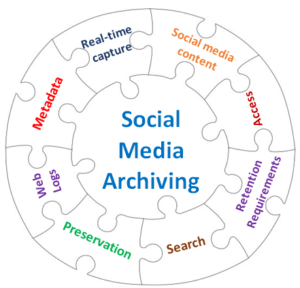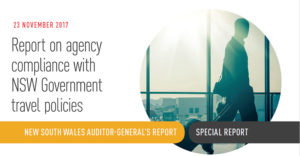Reducing file share dependencies: the Aboriginal Housing Office’s approach April 16, 2018 No Comments
Next to emails, share drives / network drives or file shares are probably the most utilised resource for storing records in any agency. Often they are a nightmare to navigate, let alone manage.
One of the strategies used to solve the problems associated with file shares is to implement an electronic document and records management system (EDRMs). However, having EDRMs in place doesn’t guarantee reduction of file share usage.
We are fortunate that the Aboriginal Housing Office shared to us how their Records Management (RM) Program implementation increased their EDRMs usage adoption and reduced their file share footprint.
The Aboriginal Housing Office (AHO) is a legislative authority established under the Aboriginal Housing Act 1998. The AHO administers the policies and funding arrangements for Aboriginal community housing in NSW.
Case Study – Internal Pilot – Machine Learning and Records Management March 20, 2018 4 Comments
Motivation
In 2017 State Archives NSW’s Digital Archives team began investigating the application of machine learning to records management. The first deliverable of this project was a research paper published on the FutureProof blog that explored the state of art (what the technology is capable of) and state of play (how it is being used in records management). One of the key findings of this report was that, although machine learning has potential to improve the classification and disposal of digital records, there has been very little adoption of the technology, particularly in New South Wales. In order to promote uptake we committed to a series of internal and external pilots to further explore and showcase machine learning for records management.
This case study documents an internal pilot that the Digital Archives team conducted in November and December 2017. The goal of this pilot was to apply off-the-shelf machine learning software to the problem of classifying a corpus of unstructured data against a retention and disposal authority. The results of this pilot were shared at the December 2017 Records Managers Forum. Read the rest of this entry »
Top digital trends affecting records, information and content management March 12, 2018 No Comments
We recently attended an expo where a “big picture” view of the current digital trends was presented and we saw how these trends relate- to  product developments in the records, information and content management space.
product developments in the records, information and content management space.
Some of the trends discussed were based around users and how they use and demand technology
- Users are changing the way information technology (IT) works in that users are demanding technology to be always on, connected and providing real-time information. Read the rest of this entry »
‘Recordkeeping by design’ – opportunities for local government February 26, 2018 No Comments
As we have noted before, ‘digital transformation’ is a priority in NSW. At the State level, the NSW Digital Government Strategy aims to see a ‘digital by design’ approach embedded across the NSW public sector.
The NSW Government’s goal is for people to transact with government via digital channels wherever possible. Four years ago, 44% of government transactions occurred via digital channels. The Government wants this level to reach 70% by 2019.
Local government is also caught up in the digital transformation, with many councils seeing their data as a major organisational asset that can drive innovation and productivity. Last week I spoke at a conference for local government information managers on the recordkeeping opportunities and risks associated with digital transformation. Here is some of what I said:
The business and recordkeeping benefits of digitising approval processes February 14, 2018 No Comments
 The Digital Implementers Group met last week to talk about the ways in which NSW Government agencies have implemented electronic approvals (e-approvals). The group talked about the pros and cons of various applications and how digitising approval processes has benefits both for business AND recordkeeping.
The Digital Implementers Group met last week to talk about the ways in which NSW Government agencies have implemented electronic approvals (e-approvals). The group talked about the pros and cons of various applications and how digitising approval processes has benefits both for business AND recordkeeping.
Approaches to managing social media records with long-term retention periods January 29, 2018 No Comments
Government use of social media are many and varied, but in total, it is used to  communicate and to engage the community regarding policies, new and existing services including service disruptions, and government projects / initiatives.
communicate and to engage the community regarding policies, new and existing services including service disruptions, and government projects / initiatives.
In our guidance “Strategies for managing social media records” we have enumerated various strategies depending on business needs and risks.
As social media platforms and technologies mature and offer more services, we recommend that agencies consider the approach of leaving social media records in its native platform or application as most of these records have short term retention requirements and the risks associated with the business are low. Read the rest of this entry »
Records Managers Forum presentations now available on Future Proof January 8, 2018 No Comments
The presentations and podcasts from the Records Managers Forum held 11th December 2017 are now available on Future Proof.
State Archives and Records NSW uses the Forum to engage with public offices and to provide an opportunity for other NSW public sector organisations to share information about key initiatives or government programmes.
The Forum included presentations from:
- Christine Boardman, Executive General Adjuster, Crawford Global Technical Services – “Damage – the Journey from Destruction to Recovery”
- Dominique Mossou, Conservator, State Archives NSW – “Practical aspects of records recovery and conservation”
- Richard Lehane, Glen Humphries and Malay Sharma from Digital Archives Team, State Archives NSW – “Machine learning and records management.”
Review of the general authority for source records that have been migrated December 19, 2017 No Comments
 Systems migration is a frequently occurring activity for any organisation that conducts its business digitally. And the ‘digital on the inside’ priority of the NSW Government Digital Strategy may be a driver for migration as agencies streamline their business processes and consolidate their legacy systems.
Systems migration is a frequently occurring activity for any organisation that conducts its business digitally. And the ‘digital on the inside’ priority of the NSW Government Digital Strategy may be a driver for migration as agencies streamline their business processes and consolidate their legacy systems.
The general retention and disposal authority for source records that have been migrated (GA33) permits NSW public offices to destroy the source records remaining after a successful migration project, subject to certain conditions being met. We are currently reviewing this authority, and are seeking feedback from NSW public offices.
Recordkeeping FAQs – Using third party software for business transactions December 18, 2017 No Comments
 Across the NSW public sector, organisations are using a variety of third party software to manage their business.
Across the NSW public sector, organisations are using a variety of third party software to manage their business.
The recent NSW Auditor-General’s report into agency compliance with Government travel policies has highlighted some of the advantages and disadvantages with using third party software for business transactions.
Recordkeeping FAQs – records in EDRMS are not immune from format obsolescence November 30, 2017 No Comments
 File format obsolescence used to be a source of great concern for recordkeeping professionals. And while we haven’t exactly forgotten about obsolescence, our attention has lately been focussed on the diversity, variability and quantity of digital records being created.
File format obsolescence used to be a source of great concern for recordkeeping professionals. And while we haven’t exactly forgotten about obsolescence, our attention has lately been focussed on the diversity, variability and quantity of digital records being created.
Some recent enquiries from agencies have reminded us of the need to maintain our vigilance against format obsolescence. And it’s important to remember that electronic recordkeeping systems, like EDRMS, are not immune. Read the rest of this entry »


